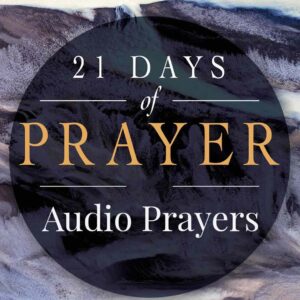The Purpose of the Wilderness
The Scriptures are chock full of themes woven together to reveal God’s masterful plan of restoring a right relationship with His creation. Like a tapestry containing a myriad of messy threads on one side, the other side shows a beautiful and clear picture that expresses the purposeful intention of the artist. One such theme is the role of the wilderness in the life of God’s chosen people. The Baker Encyclopedia of the Bible describes the wilderness as “land that is basically wild, nonarable, and sparsely inhabited or unfit for permanent settlement. It may be desert, mountains, forest, or marsh.” In the ancient Near East, the wilderness was often dry and desolate, consisting mostly of dirt and sand.
In short, the wilderness is a space that is uninhabited and uncultivated. But within the storyline of Scripture, the wilderness was often the place God sent His people to inhabit in order to cultivate a desire for His presence and dependence upon His guidance.
Within the storyline of Scripture, the wilderness was often the place God sent His people to inhabit in order to cultivate a desire for His presence and dependence upon His guidance.
Israel’s Wilderness
Moments after Israel’s miraculous deliverance from their centuries-long season of Egyptian slavery, it is mentioned of them in Exodus 15:22, “Then Moses made Israel set out from the Red Sea, and they went into the wilderness of Shur. They went three days in the wilderness and found no water.” It’s been said that after the Lord mightily took Israel out of Egypt, He then had to mercifully take Egypt out of Israel. Often, after the greatest victories and celebrations come great times of testing. What was the Lord’s method to sanctify His people? The wilderness. They had to be prepared to receive the promise of the land and life God had sworn to give them.
It’s been said that after the Lord mightily took Israel out of Egypt, He then had to mercifully take Egypt out of Israel.
For forty years the people of God dwelled in the wilderness. It was during this time that they learned obedience to the covenant given to them through Moses and dependence upon the presence of God. Numbers 2:2 reveals that even the way Israel set up camp was focused on His presence: “They shall camp facing the tent of meeting on every side.” God’s presence was manifested as a cloud over the tent during the day and as a pillar of fire at night so that, “At the command of the Lord the people of Israel set out, and at the command of the Lord they camped” (Numbers 9:18). Israel had to learn that the ultimate promise was not to be found in a geographical location, but in cherishing and experiencing a relationship with the person of the LORD.
Even though the Lord accomplished His purpose through the wilderness for Israel, this pattern was pointing to something, or rather someone, greater.
Jesus’ Wilderness
Jesus was likely still drying off from His monumental baptism in the Jordan River when it was said of Him in Mark 1:12, “The Spirit immediately drove him out into the wilderness. And he was in the wilderness forty days, being tempted by Satan.” God the Father had just declared the identity of His beloved Son Jesus when the Spirit of God quickly moved Him into His next season. Like Israel, He went out in haste. Yet unlike Israel, He did not delay His wilderness but overcame the devil’s schemes by obeying the Word of God rather than rebelling against it. Even though Jesus’ identity, purpose, and trust in the Father was challenged, it resulted in a readiness to fulfill the Father’s ultimate plan of reconciling all things back to God (Colossians 1:19).
This was one of a myriad of ways in which Jesus’ life and ministry fulfilled what Israel had failed to realize. Yet this is also one of the mysterious yet encouraging ways Jesus prepared for us to follow in His example. Hebrews 5:8-9 testifies that, “Although he was a son, he learned obedience through what he suffered. And being made perfect, he became the source of eternal salvation to all who obey him.” The wilderness is God’s training ground to cultivate the intimacy that comes from trusting and obeying His plan, timing, and promises.
The wilderness is God’s training ground to cultivate the intimacy that comes from trusting and obeying His plan, timing, and promises.
Luke’s account powerfully summarizes the result of Jesus’ wilderness season in this way: “And Jesus returned in the power of the Spirit to Galilee” (Luke 4:14).
Ultimately, the wilderness is a place of meeting with the Lord, because it is the Lord who led Israel, who led Jesus, and who leads us into it. If the wilderness was necessary for Israel and for Jesus, it is also necessary for us as part of God’s gracious and wise plan to form us into the image of our Savior.
Your Wilderness
I once had a mentor tell me that you cannot avoid a wilderness season, for they are necessary and divinely orchestrated by our sovereign Shepherd. But even though we may not be able to avoid the wilderness, we can prolong it. Like the Israelites, we can prolong or delay our wilderness season by disobedience. But like Jesus, we can also choose to cling to God’s faithfulness and trust in His Word even when we feel spiritually dry and desolate.
I have personally experienced a few notable wilderness seasons in my life. Upon reflection, these seasons have been used by the Lord to bring me from the following:
From bondage to freedom
From discontent to contentment
From grumbling to gratitude
From self-reliance to dependence
From deception to truth
From isolation to community
From loneliness to intimacy
From discord to harmony
From striving to resting
From division to unity
From purposelessness to promise
Yet getting from where you are to where God wants you to be requires a journey of listening, waiting, trusting, and obeying.
So if God has you in a wilderness season right now, may the Spirit of God freshly apply these words from the prophet Hosea to your heart:
“Therefore, behold, I will allure her,
and bring her into the wilderness,
and speak tenderly to her.
And there I will give her her vineyards (restore fruitfulness)
and make the Valley of Achor (trouble) a door of hope.” – Hosea 2:14-15
You may feel dry, and God may seem distant and like His promises are a million miles away. But be assured, the Lord is pursuing you, He loves you, He is teaching you to hear His voice, He is working to restore you and mature you, and He will transform your troubles into a gateway of hope and expectation.
You may feel dry, and God may seem distant and like His promises are a million miles away. But be assured, the Lord is pursuing you, He loves you, He is teaching you to hear His voice, He is working to restore you and mature you, and He will transform your troubles into a gateway of hope and expectation.
Like Israel, we will likely stumble, get sidetracked, and even rebel. But more importantly, like Jesus, we have been given the Spirit of God to stay the course, and to participate in the fulfillment of the Father’s purposes for us. God always finishes what He begins.
Copyright © 2022 Justin Jeppesen. All rights reserved



